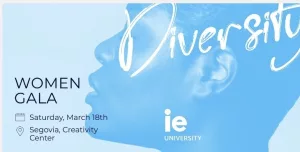On February 17th, the Asia Club and Africa Club came together to host the first ever share-circle. Members of both clubs, and other students and staff of color were welcome to share their experiences regarding racism within IE University, and Spain in general.
Both clubs hosted this event in conjunction with the IE Counselling Centre. Their main role was steering difficult conversation, as well as generating possible feedback for IE university to make its environment more accommodating and comfortable for students of color. In a brief sit down with the respective club leaders, we discussed the significance and impact of this eschewed, but necessary conversation.
This event was the first of its kind at IE University. More often than not, students of colour share their experiences with close confidants or to nobody at all. This makes it difficult for any of these experiences to spearhead institutional change. Both clubs and participants pointed out that the university has not hosted such conversations on a formal scale. IE University has left it up to affected student groups to create their own adequate support circles, if any.
Many students of color were unaware of the official routes available for them to report racist encounters within the university. This is an issue that previous students of colour at the university have previously raised. The clubs and students represented hope the university will be able to facilitate open, clear and official communication channels. Ultimately, for students to share experiences and observe institutional change.
Another important topic of conversation was what the values of diversity and inclusion look like for IE University. Within the demographic makeup of the university, many shared their concern of inadequate representation of students of colour. Which makes it increasingly difficult to facilitate such conversations on a greater scale. A particular discussion regarded whose responsibility it is truly, to educate peers, lecturers and staff on matters concerning racial aggressions. Participants raised important questions surrounding the existence and consequent effectiveness of diversity workshops. Such institutionally organised events have the potential to wield more change and awareness among all members of the university.
IE University has long prided itself in being a diverse campus. However, students have yet to see the frameworks to ensure that this diversity does not come at the expense of minority groups at university. Participants shared their hopes to experience a better future at IE University. Including a much greater intentional approach to upholding the value of diversity, especially regarding physical representation and academic course outlines. A participant shared, “it would be great to experience more professors of color, who can challenge the current syllabi that are largely skewed towards Eurocentric and North American academic outlines.”
The culmination of this event made evident the need for more frequent conversations on campus, both formally and informally. Both organizing fronts are tailoring these discussions to include a wider proportion of the student body, and produce intended change. These events also serve as a call to action for the university: to create an inclusive and supportive environment for persons of color within the community.






